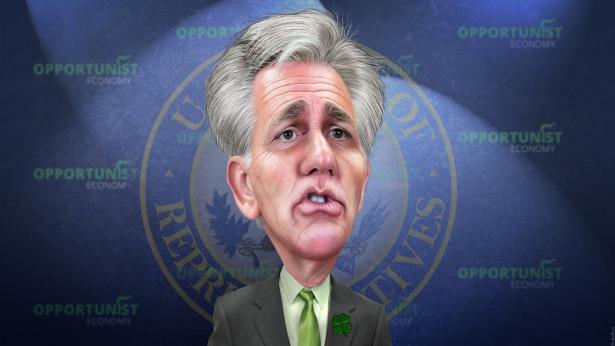Republican House leader Kevin McCarthy, who hopes to become Speaker, is in a real pickle. His majority in the House will be just four or five. The far-right members of his caucus are pushing him to a point where moderates won’t vote for him. But conversely, if he fails to meet MAGA demands, he will lose the voters of the hard right. It’s hard to see how he gets to 218 votes.
Rep. Don Bacon of Nebraska, one of the moderates, recently said what others have been thinking: If McCarthy doesn’t have the votes, “I’m going to work with like-minded people across the aisle to find someone agreeable” for Speaker.
Could this really happen? As I pointed out in a recent column, it has happened at the state level, in the New York state Senate. Our colleague Miles Rapoport reminds me that in Connecticut, conservative Democrats combined with Republicans to oust a progressive Democratic House Speaker in favor of a centrist. And just last month, nine Democrats and eight Republicans formed a bipartisan governing majority in the Alaska state Senate, leaving three MAGA Republicans in the minority.
Here is the choreography. On January 3, the Republican House caucus will meet and cast ballots for a Speaker-designate. If they agree, the full House will then vote for Speaker, and the Republican majority will prevail. But if they deadlock, Republican moderates could try to seek a deal with Democrats.
Then it gets really complicated. Is this a deal just to elect a moderate Republican Speaker? Or is it a genuine bipartisan, anti-MAGA governing caucus?
What would Democrats demand? No far-right Republicans as committee chairs and no committee fishing expeditions? Some Democrats as committee chairs?
And how would the far-right Republicans, who make up a majority of the Republican caucus, react? They would likely be livid, and could well kick the faithless moderates out of their caucus, which would make an anti-MAGA House bipartisan governing majority a reality.
The Republican moderates, like most of the brave Republicans who voted to impeach Trump, would likely lose their seats in the next election; and like Liz Cheney, they would have to decide that keeping the far right from power is worth a career-ending sacrifice.
This is the stuff of high intrigue. It is uncharted territory and may never happen. And these possibilities will certainly get the attention of the far right as they decide just how hard to push McCarthy.
One possible compromise could be Republican House Whip Steve Scalise, who was elected whip by the caucus unanimously, in contrast to the 31 votes against McCarthy when the Republicans provisionally picked their leader after the November election. Even so, the same cross-pressures would operate on any compromise candidate.
But whatever does happen, it will be a pleasure to watch the Republican disarray.
Robert Kuttner is co-founder and co-editor of The American Prospect, and professor at Brandeis University’s Heller School. His latest book is Going Big: FDR’s Legacy, Biden’s New Deal, and the Struggle to Save Democracy.
Follow Bob at his site, robertkuttner.com, and on Twitter.
Read the original article at Prospect.org.
Used with the permission. © The American Prospect, Prospect.org, 2022. All rights reserved.
Click here to support the Prospect's brand of independent impact journalism.


Spread the word